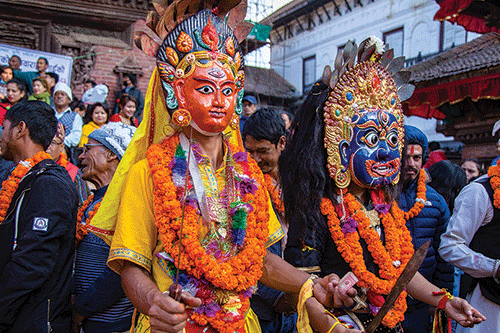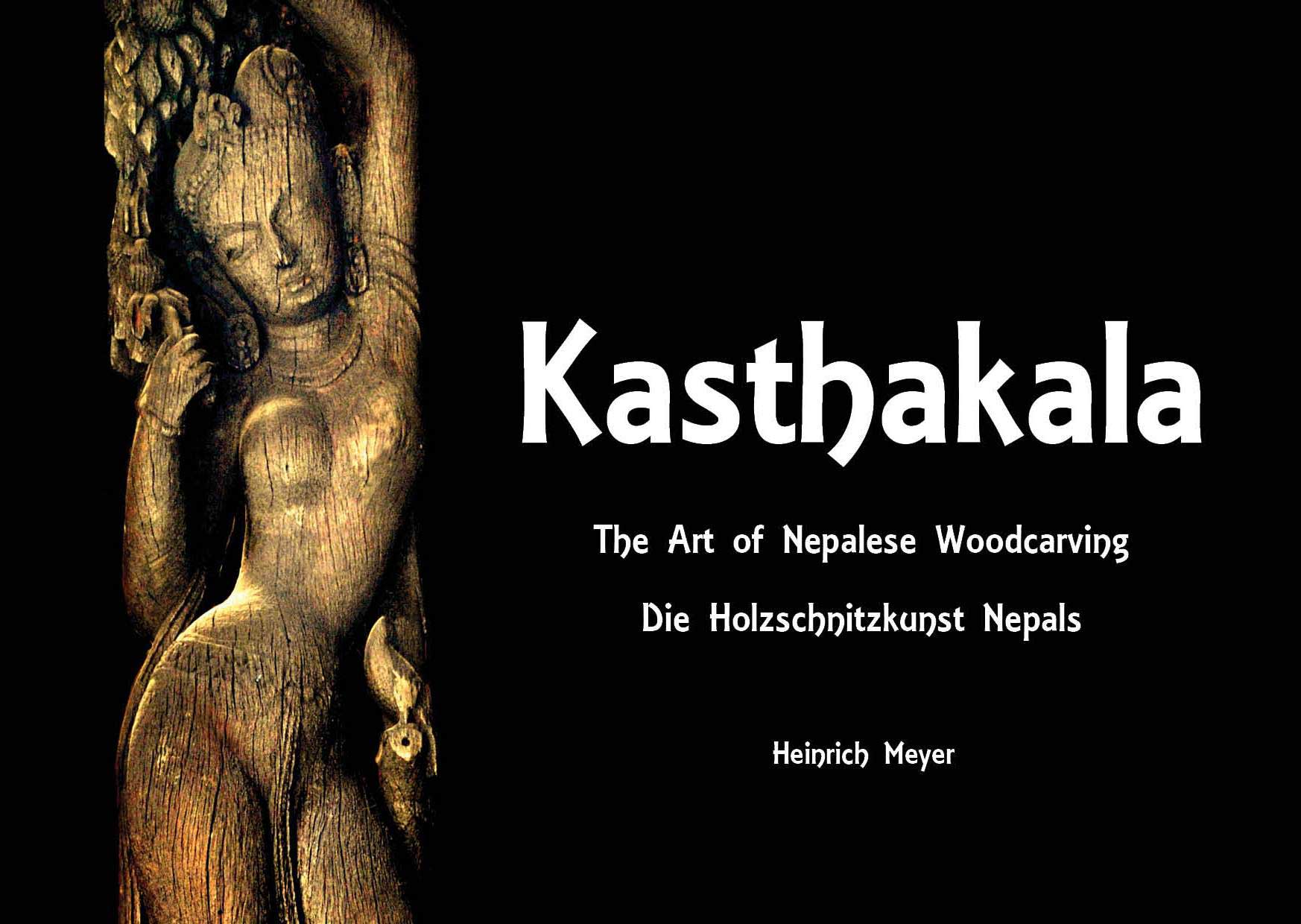Nepali society seeks personalities, symbols, monuments and events that unite us as a nation. One such iconic personality of the land is the poet and writer Laxmi Prasad Devkota. This year, 2008, is Devkota’s birth centenary. He was born in Kathmandu on the night of Laxmi Puja (worship of the Goddess of Wealth and Prosperity), in 1908.
As one of the most quoted poets, Laxmi Prasad Devkota is fondly known as Nepal’s Maha Kabi, ‘Great Poet’. Numerous presentations, technical discussions and casual conversations about contemporary issues begin by quoting Devkota. A conference about porters and their plight in Nepal once started these lines:
This great human being at the foothills of the Himal
The conqueror of nature who posses pearls of sweat on his forehead
He only has the star studded night sky as his roof
And his real wealth is his deep sleep
There is no way to capture the full emotions of Devkota’s Nepali words in translation. It is best to recite them in the original Nepali, and discuss them with those who understand and can feel their power.
One of Devkota’s interesting essays is entitled “Is Nepal really small?” He described Nepal as “Sunder, Santa, Bishal” (Beautiful, Peaceful and Great). In this essay he asks each of us to consider why he described Nepal as “not small”. Diamonds are small, pearls are small, the heart is small, he said, yet each is great in its own right. Similarly, the winds off the mountains, the blue color of far off hills, and the endless harvests all make Nepal great. Though small in area compared to other places, home is always great.
Researching Devkota’s life and works is not easy. There is even disagreement over the year of this birth. We know, however, that at age ten, he published his first poem in Prahari, a local journal. At 11 he enrolled at the Durbar High School in Class Five, and at 16 he passed his matriculation exam from Patna University with First Division marks. He was also married that year. He then went on to complete several degrees: Intermediate in Science, Bachelor of Arts and Bachelor in Law. While completing his studies, he lived by tutoring others at home.
In 1934 Nepal suffered the great earthquake accompanied by a huge loss of life and property, and in the next two years both of Devkota’s parents died. In 1935, the Gorkhapatra newspaper published some of his poems and one, dedicated to “The Poor”, was also published in a new magazine called Sharda. From then on, he regularly composed poems, novels, short stories, essays and plays and, at the same time, he began learning the Tamang and Tibetan languages.
When his health deteriorated, some thought he was a mental patient, so he was sent to India for treatment. Upon returning to Nepal he began to travel within the country. In 1942 Devkota published his first book and in 1945 he published the great epic Shakuntala, a major composition 557 pages long. His most popular long poem is Muna Madan, in which the central character goes to Lhasa to trade, falls ill, and is detained while recovering. When he arrives back in Nepal he finds that his beloved wife has died.
Laxmi Prasad was addicted to smoking, and friends remember that he could smoke 12 packs a day. As his meager income was still mainly from tutoring, he fell into deep financial trouble. After 1950, Devkota began to help establish various organizations dedicated to language and literature. He was, for example, one of the first members of the Royal Nepal Academy. By this time, he was composing in Sanskrit, Nepali, Hindi, Newari, Urdu and English and (his friends claim) even in German and French.
He could also recite and translate poems simultaneously between Nepali, English and Newari. Devkota attended literary conferences all over Asia and Europe, and is even said to have composed in Chinese, Russian and Italian. In 1957, Devkota joined the cabinet of Prime Minister K.I. Singh, as Minister of Education and Governance. Two years later he was diagnosed with cancer, and soon passed on.











